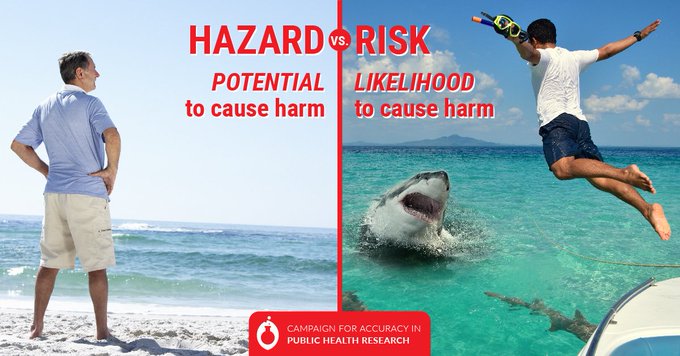Now Shark Week is much the same, a part of the cultural lexicon. They used to market it, one year they even killed me off in a shark attack as part of their promotional stunt, but now I bet they don't have to do much at all. Yet when you grow to be important, you are going to those who want to bring you down a little. Big tree fall hard, as the saying goes.

See, chum means friend but it is also what sharks eat...oh never mind.
A presentation at the American Elasmobranch Society Conference on shark science (“Content analysis of 32 years of Shark Week: trends in messaging, subject matter, and portrayal of sharks”) takes a bite out of them. Some of their criticisms are valid, some seem a little nit-picky. Let's discuss.
Claims to be documentary. Discovery Channel claims it is documentary programming, but anyone who knows anything about documentaries knows that science is included only as long as they fit the narrative. In most documentaries, even ones that claim to be about facts or events, there is a lot of hyperbole.
Marine biologists, including shark scientists, are mostly okay with the hype and supernatural framing of Shark Week because it's good publicity. Have you ever seen a "Cows: Are They Hunting Us?" program on TV? No, even though cows kill more humans each year than sharks do. Ranchers only wish they could be heroes for herding cattle the way sharks are for studying sharks.
This group isn't letting those flaws go, though. And like a good documentary does, if the facts don't fit the narrative, they use a tone that suggests it is a problem in hopes of creating one.
They make science seem too exciting. They watched over 200 Shark Week episodes and found that it focuses too much on negative portrayals of sharks and makes shark research...more exciting than it really is.
What? Science is mostly not exciting? It's a job? Yes. Discovery Channel employees also have a job and that job is to get you to watch advertisements during programming. Watching how boring science is for 48 weeks a year won't do that.(1)
Shark Week content is exaggerated. They also note that Shark Week is exaggerated. So what? So are all those TV shows about lawyers. TV has been such effective public relations that environmental lawyers get framed as heroes by those smart enough to know better, even though they get rich shaking down companies and taxpayers with pre-arranged sue-and-settle lawsuits for their funding.
Would roundworm researchers love an annual spectacle that turns them into media stars, raises salaries, and inspires kids to go into the field? They would.
Non-scientists as hosts. Scientists are great at what they do, finding those that can also do well as speakers is more of a challenge. They're in big demand. If the non-science hosts say things that are incorrect about the biology or behavior of sharks that isn't their fault. It's a script. A short while ago, during the NBA playoffs, a media talking head said Russia had developed a jet that could go twice the speed of light.
Ann Druyan wrote stuff that was almost as goofy for Neil Tyson in the "Cosmos" reboot, like that Bruno was a martyr for science when he was just a loon. We can't blame the messenger for doing the messaging and that applies to Shark Week also.
Even more of a stretch is Shark Week is not woke enough, because it is often in places where non-white people live yet the experts tend to be white. It's a credentialism world, "lived experience" has not yet replaced having a Ph.D. in science, and no one believes that the Bahamas is populated by white guys named Mike(2) because they are over-represented in Shark Week. It's overwhelmingly an American audience and developing nations want money from rich countries there with video cameras a lot more than they want to have someone even they've never heard of from their own country on a program no one watches.
Basically, they recommend that Discovery stop doing what is working and start engaging in social justice. That's all great to opine about when you have no money at risk, and will not be the one unemployed when Shark Week gets canceled because it becomes a boring science program that is checking off social justice boxes rather than being entertaining. The event works because it is exciting, they know to 'sell the sizzle and not the steak', and they know that the fastest way to go from a million viewers to 0 is to start preaching at the audience based on the recommendations of a few academics who watched the show and didn't like it.
Shark Week 2021 begins on July 11th and if executives are smart they listened to none of the recommendations in the paper and just set out to entertain people. The risk of ignoring them is negligible, the relative risk of doing what they recommend and making a bad program is quite high. But since this is about Shark Week let's put it this way:

On the left, the risk to all those people employed by Shark Week if they ignore a tiny minority of shark scientists. On the right, the risk if they fix what ain't broke.
NOTES:
(1) You know who really got a letdown? All those people who went into archeology after watching "Raiders of the Lost Ark" and found that most of it is done in libraries and there is very little fighting Nazis or discovering ultimate cosmic power. A few wet blanket archaeologists are probably still complaining about that now.
(2) But it is hilariously to their point that among people who have been in the shows 5 or more times, there were more white non-scientists named "Mike" than there were women of any name or occupation.



Comments